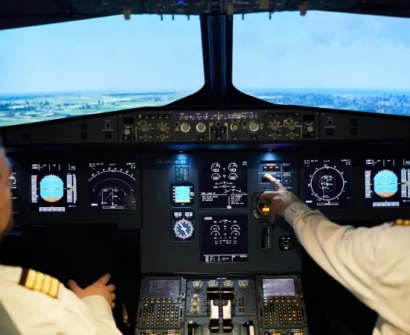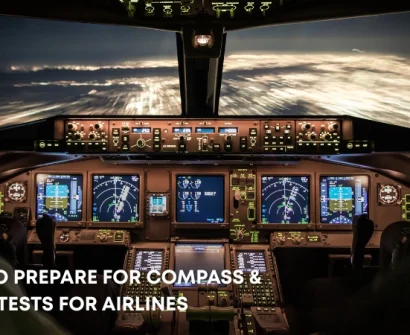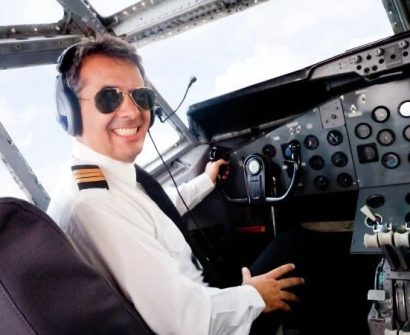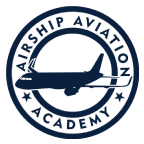Currently Empty: ₹0.00

The journey to becoming a commercial pilot is both exciting and demanding. It requires a blend of practical flying experience and comprehensive theoretical knowledge. Understanding the importance of CPL Ground Classes and selecting the right DGCA exam books is crucial when aspiring to obtain a Commercial Pilot License (CPL) in India.
Primary ground classes for CPL are essential for building a solid foundation in aviation knowledge. Secondary study materials often include DGCA exam books to ensure thorough preparation for CPL aspirants. This blog provides a detailed guide on these aspects to help you navigate your path efficiently.
The Role and Syllabus of CPL Ground Classes
Ground classes are crucial in Commercial Pilot License (CPL) training, providing the theoretical base for safe and efficient flying. These classes cover essential topics such as aerodynamics, navigation, meteorology, and aviation regulations, ensuring that pilots understand the principles behind flight operations. They also prepare students for the written exams required for CPL certification.
Also, ground classes enhance decision-making skills by simulating various flight scenarios and emergencies. They bridge the gap between theoretical knowledge and practical flying experience, creating well-rounded, competent pilots.
Air Navigation
The ground classes for CPL form the spine of pilot training. They cover many subjects essential for developing the theoretical knowledge required for flying. One of the primary ground classes is Air Navigation. This class focuses on understanding how to navigate an aircraft safely from one point to another. The content includes studying maps, charts, navigation systems, radio navigation aids, and instrument navigation. You’ll learn to calculate distances and bearings and how to interpret various navigation instruments, which are critical skills for any pilot.
Air Meteorology
Another essential ground class for CPL is Aviation Meteorology. This class helps students grasp the impact of weather on flying conditions. The subject covers atmospheric pressure, temperature, humidity, clouds, precipitation, visibility, and weather forecasting. Understanding meteorological phenomena and their implications on flight safety is critical to making informed decisions during flight operations.
Air Regulations
Air Regulations is another crucial ground class that focuses on comprehending the legal framework governing aviation. This class involves studying national and international aviation laws, rules of the air, air traffic control procedures, and the functioning of government bodies like the Directorate General of Civil Aviation (DGCA). Knowledge of air regulations ensures that pilots operate within the legal parameters and maintain safety standards.
Technical General
In addition to these, Aircraft and Engines is a ground class that provides insight into the mechanics and systems of aircraft. This subject includes the design, operation, and maintenance of aircraft engines, airframes, electrical systems, and other vital components. A thorough understanding of these elements is essential for troubleshooting and ensuring aircraft safety.
Radio Telephony
Lastly, Radio Telephony (RT) is a vital ground class aimed at mastering communication procedures used in aviation. This class encompasses learning the standard phraseology and procedures for effective communication with air traffic control and other aircraft. Proficiency in RT is critical for avoiding misunderstandings that could compromise flight safety.
Choosing the Right DGCA Exam Books
Preparing for DGCA exams requires thorough study and the right resources. Several recommended DGCA exam books can significantly aid your preparation. “Aviation Meteorology” by I.C. Joshi is a staple for understanding weather-related concepts. It covers the syllabus comprehensively and is written in a manner that’s easy to grasp, making it a favourite among students.
“Air Navigation” by P. Jeppesen is known for its detailed explanations and clarity. This book is invaluable for mastering navigation techniques, including practical examples and exercises to help reinforce the concepts. Similarly, “Aircraft and Engine” by Lalit Gupta offers in-depth knowledge about aircraft systems and engines tailored specifically to the DGCA syllabus. It’s detailed and precise, making it an excellent resource for both studying and revision. DGCA exam books cover all the topics in detail, including the question bank at the end of the chapters.
For understanding human factors affecting flight safety, “Human Performance and Limitations” by David Robson is widely used, despite not being specifically a DGCA book. It covers relevant content on physiology, psychology, and ergonomics. Lastly, “Air Regulations” by R.K. Bali is a comprehensive guide to air law and regulations, ensuring you cover all the legal aspects required for the DGCA exams. It’s well-structured and up-to-date with current regulations. The DGCA exam books offer the best theoretical knowledge of the aeroplane and its functionality.
Tips for Effective Study and Preparation
Developing a structured study plan is essential for effective preparation. Create a study schedule that covers all subjects methodically, allocating more time to challenging topics. Consistent study sessions help retain information better. Regularly practising mock tests and solving previous years’ question papers is also crucial. This not only helps you get familiar with the exam pattern but also identifies areas where you need more focus.
Engaging with fellow students in study groups can provide new insights and make studying more interactive. Collaborative learning often enhances understanding and retention of complex topics. Staying updated with any changes in the DGCA syllabus or exam pattern is also important. Regulatory updates are crucial and can impact the content of your exams.
Creating a conducive study environment free from distractions can significantly enhance concentration and productivity. A quiet, organised space dedicated to study sessions can make a massive difference while you are preparing.
Conclusion
The path to becoming a commercial pilot involves rigorous training and dedicated study. Ground classes provide the theoretical foundation essential for safe and efficient flying, while the right DGCA exam books ensure you are well-prepared for the regulatory exams. By following a structured study plan and utilising the recommended resources, you can navigate your path to becoming a commercial pilot with confidence and success.
Success in DGCA Ground Classes is more likely when students effectively utilise both primary ground classes and DGCA exam books. Also, Airship Aviation Academy could help you navigate your way towards a successful aviation career. You can contact us now to secure your career objectives.










